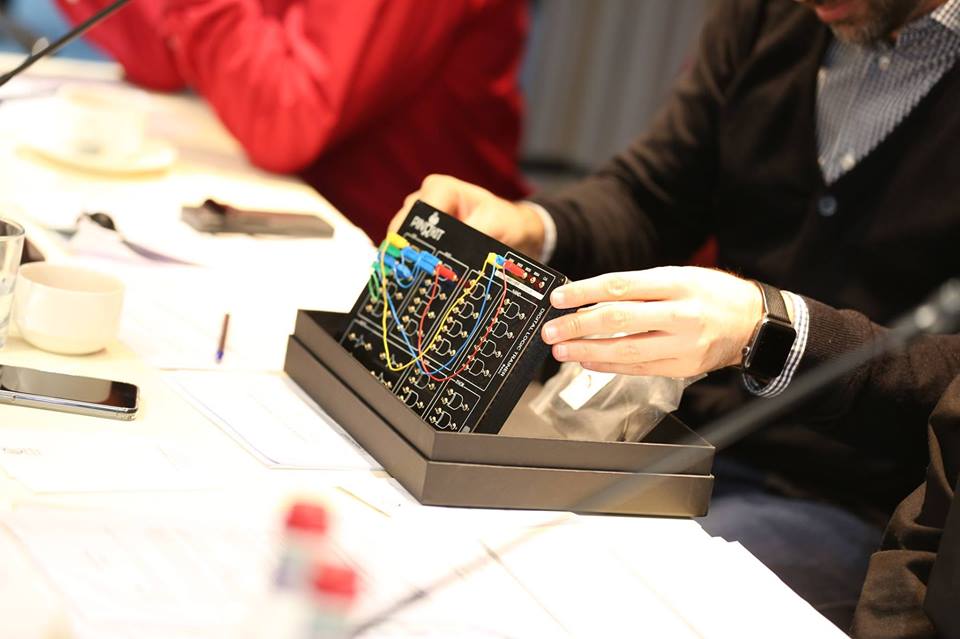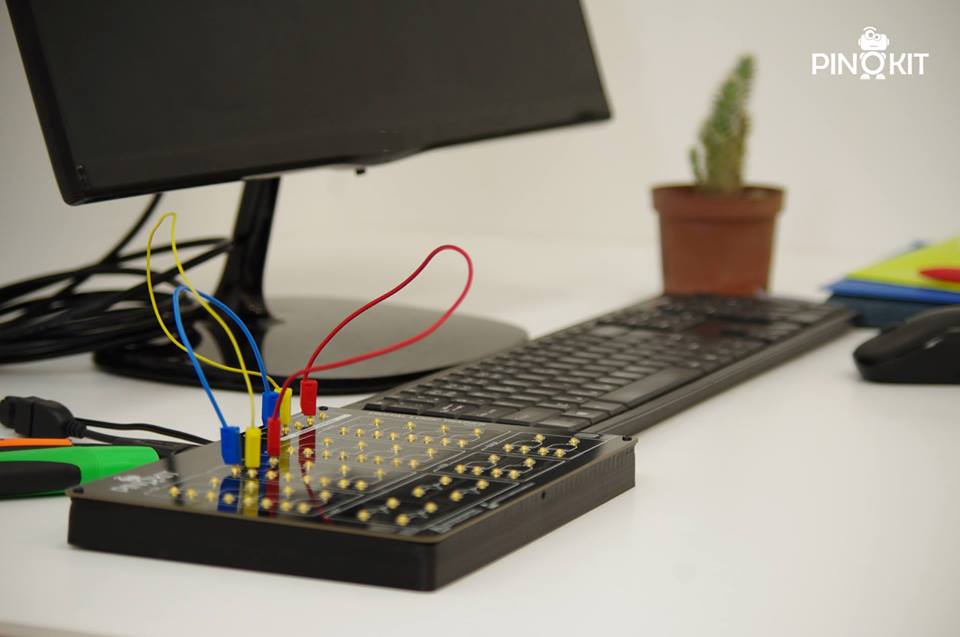Davit Zargaryan. Due to our plan, the Educational Trainer Kits should be provided to the local schools free of charge
STEP2 grantee PinoKIT is a Raspberry Pi-based highly functional and cost-effective educational trainer kit, made for STEM students. Created by Stem Didactics, it helps students visualize the educational process with hands-on learning.
EIF blog has interviewed the startup co-founder Davit Zargaryan.
Please share with us the story of your startup.
The root of every idea is a problem. We eternally encountered the same problem while supervising tech students in our engineering company www.10X.am. About 80% of them could not implement their knowledge in real projects because of insufficient practice knowledge.
We made the decision to develop a special top board just for our internal use, which would help students/interns gain skills by doing highly fascinating hands-on experiments themselves to visually understand the basic of physics and electronics. AND IT WORKED! Students became more engaged and interested in their profession. They were able to find the answer to a host of questions.
This success made us think about expanding the idea and making it available for larger audiences. And PinoKIT was born.

PinoKIT proposes a low-cost, user-friendly learning solution to improve the access to STEM world through our trainer kits to children of educational institutions in developing countries (low-income areas) in transition.
What challenges did you face at the early stages of your startup?
There is no problem in opening the company here in Armenia, the main challenges are arising after the opening, and here we had some problems regarding:
The absence of cluster – Sometimes startups have to share the resources to be able to save on this, and due to the absence of the organized cluster the process becomes time and work consuming.
The education – Law level is a reason of the problem with the staffing, the startup has to educate and grow the employees itself, and this is again time and work consuming process.
Lack of connections and channels with the international market.
Lack of ventures (they are doing 1st steps), so the seed-stage startups can be approached.
My best advice would be to find a network, people, do the sales, and after that open a startup in Armenia.
Does your startup plan to raise new investments in the nearest future?
Yes, we want to find an investment, we became 1st stage finalist of Accelerate 2030.
We had a plan to finalize our 2 products and approach philanthropic companies like EU, UNDP, GIZ with below offer.

Due to our plan, the Educational Trainer Kits should be provided to the local schools free of charge. Here I suppose the fruitful cooperation is possible.
With the help of above-mentioned organizations, we provide our products to the local market (just founding only production part, no PROFIT), where after the delivery, the feedback processes will be considered as one of the most important and initial parts of our job. Having real feedback from our educators, we can modify our products, correct some bugs and mistakes to create more valuable, field-tested educational kits and enter the Global market. At the end of the day, our schools will have products and we will get customer feedback.
STEP2 grantee Stem Didactics: Our product will soon be ready for going to the international market
Which are those mistakes that you have made during your startup career that you think others should avoid?
We began the process knowing that hardware startups have 10 times more challenges than software ones. We are operating normally, 7 months have passed so, to be honest, there were no big mistakes I would like to highlight.
Your advice to those young people who are interested to launch their own startup in the Armenian market?
My advice is to find people from the targeted market, as here you are rounded with talented people but there is the market size and networking problem.
Tags In
Leave a Reply Cancel reply
You must be logged in to post a comment.

